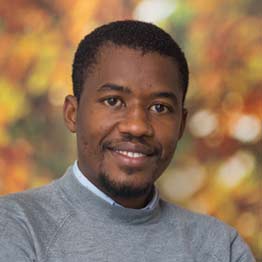26/01/2022
Published in
The Conversation
Javier Larequi Fontaneda
researcher junior Navarra Center for International Development, University of Navarra
Tijan L Bah |
Resident Fellow, Navarra Center for International Development, University of Navarra, Spain.

 Hundreds of Gambians rallied last December 5 at the gates of the United Democratic Party (UDP) headquarters to protest against the result of the last presidential elections in The Gambia, which awarded candidate Adama Barrow as the winner. with 53% of the votes. At the same time, supporters of the winner also celebrated in Banjul, the capital, his uncontested victory.
Hundreds of Gambians rallied last December 5 at the gates of the United Democratic Party (UDP) headquarters to protest against the result of the last presidential elections in The Gambia, which awarded candidate Adama Barrow as the winner. with 53% of the votes. At the same time, supporters of the winner also celebrated in Banjul, the capital, his uncontested victory.
The Gambia has a unique voting system, in which the electorate uses marbles instead of ballots in elections. It is a transparent system that avoids manipulation and encourages a high voter turnout, which in the last elections reached almost 90% of the electorate.
Each voter has one marble which he/she deposits in one of the ballot boxes (sealed drums). The issue of ballot boxes is determined by the issue of candidates. Each ballot box is marked with the photograph of each candidate and painted with the official color and symbol of their party, allowing voters to easily recognize their preferred candidate .
Barrow, current president and candidate of the National People's Party swept with more than half of the support (53%). Candidates Ousainou Darboe, with 27.7% of the vote, and Mama Kandeh, with just 12.3%, came second and third respectively.
The African Union, the European Union or the United States assured that the elections have been "fair, transparent and credible", but Darboe has filed a resource against the results. According to civil service examination, the counting of the votes took longer than expected and there were incidents in some polling stations.
However, the Supreme Court of Gambia rejected last December 28th the resource presented by the civil service examination to prevent the reelection of Barrow, who has been accused of asking for the vote of the voters with gifts during the electoral campaign. The resource has not been admitted due to a formal defect, as a copy of the same was not delivered to the People's National Party, winner of the elections, as required by the electoral law.
The Gambian elections have been watched with great interest in Spain, the third country that receives the most Gambian immigration, only behind Italy and Senegal. 72% of these migrants live in Catalonia, where they have consulates in Barcelona and Gerona, in addition to those of Almeria, Las Palmas de Gran Canaria, Madrid and Zaragoza.
One of the least violent countries in Africa
The doubts created by the civil service examination in Gambia's election results are not good news for an African continent that already suffered four military uprisings in 2021 in Chad, Mali, Guinea and Sudan. However, The Gambia, besides being the smallest and poorest country in continental Africa, is also one of the least violent. It was for a century, until 1965, a colony of the British Empire, from which it became peacefully independent and from which it also inherited a great political culture as a result of the establishment of universal suffrage by the British in 1960.
The Gambia's great ethnic and linguistic diversity, which also carries over into the elections, has also not caused civil strife in a country where 90% of the population practices Islam. Even the coup d'état launched by the then young military officer Yahya Jammeh in 1994 did not lead to bloodshed.
However, The Gambia did not have an easy transition in 2016, when it changed an authoritarian regime through elections. The transition, although tense, did not end in civil conflict either. President Jammeh, after 22 uninterrupted years in power, lost the elections and conceded defeat, but then changed his mind and refused to step down. It took national and international pressure and military intervention led by ECOWAS troops in January 2017 to force Jammeh to flee to Equatorial Guinea, where he is hosted by dictator Teodoro Obiang.
Jammeh was then defeated by Adama Barrow, a real estate businessman little known in the world of politics. While many saw him as a temporary president, he has now managed to sweep the polls. Although he initially became president with the support of the UDP, his refusal to keep his promise to stay in power for only three years and hold the presidency for five led him to break with the party and run this time with the People's National Party.
The conclusions of the Truth Commission
During these years, The Gambia has rejoined the Commonwealth and has seen an increase in tourist arrivals and commercial activity. In addition, a Truth, Reconciliation and Reparation Commission has brought to light the repression carried out by Jammeh during his years in power, in which human rights violations abounded.
In its recently published findings, the Commission has accused the former Gambian leader of the killing of students, crimes against journalists and opposition politicians and the rape of a young beauty queen, as well as torture and persecution. The question now is whether Jammeh will be tried by an African international court.
It is striking that Barrow ran in the elections in coalition with the Alliance for Patriotic Reorientation and Construction, Jammeh's former party, which for a while was interpreted as a possible reconciliation with the ex-dictator. However, doubts were dispelled when he criticized the alliance and supported Kandeh in the elections, candidate , who eventually came in third place.
Along with the passage of a new constitution and the update of many colonial-era laws, perhaps Barrow's biggest challenge today is promote vaccination in The Gambia, where many believe that covid-19 is exclusively a white disease.
This article was originally published in The Conversation. Read the original.
![]()
